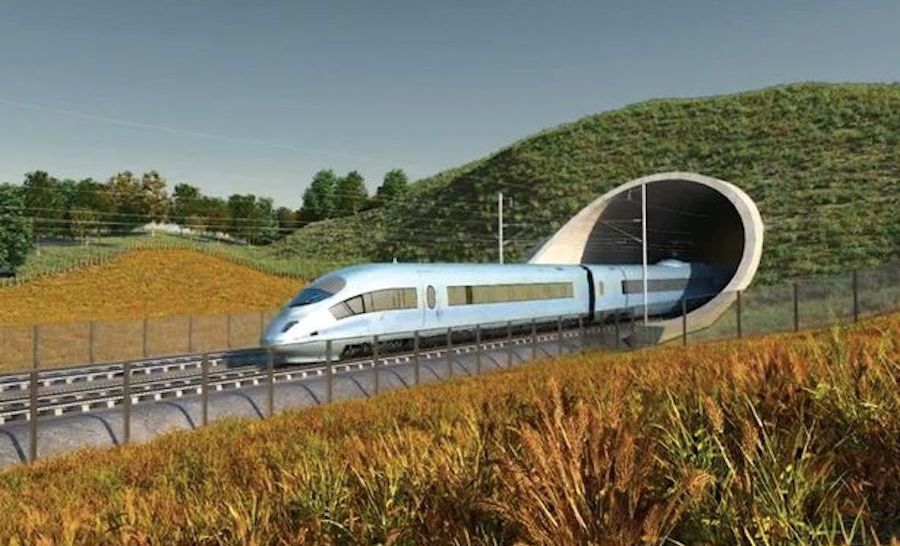A contract worth up to $220 million to help manage development of the U.K.’s next 335 kilometers of high-speed rail has gone to San Francisco-based Bechtel Inc. The firm placed second in bidding on the estimated $32-billion project but won the prize when Denver-based CH2M Inc. pulled out during a review of an alleged conflict of interest.
In its new role as development partner, Bechtel will support government-owned High Speed Two Ltd. (HS2L) as it prepares for legislation to authorize construction of the HS2b line to start after 2020. It will extend from near Birmingham to Leeds and Manchester.
Conflict of interest issues involving employees who work first for a public agency and then a contractor or engineer, and vice versa, have become an increasingly scrutinized aspect of construction industry ethics.
CH2M withdrew from the role of development partner one month after securing the contract in February against competition from Bechtel and MACE Group, U.K.
Work on a first phase, from London to Birmingham, starts this year. Bechtel will manage three newly named teams handling $450 million of design work for HS2b’s draft legislation, set for parliamentary ratification in 2019.
CH2M withdrew from the role of development partner one month after securing the contract in February against competition from Bechtel and MACE Group, U.K. Rather than rebid the contract, HS2L chose Bechtel. Its offer was 15% more economical than MACE’s, and its technical submission was “marginally” better, says David Higgins, HS2L chairman.
CH2M’s exit came weeks after a whistleblower informed MACE that a design-firm manager involved in the bid had formerly been assigned to HS2L, said Higgins in testimony to a parliamentary committee.
The manager, Christopher Reynolds, was chief of staff to Alison Munro, a former HS2L CEO, from 2011 to 2013, during preparation of draft legislation for the line’s first phase, from London to Birmingham. He had two more roles until June 2016.
When questioned on Reynolds’ role, CH2M insisted he had no confidential information and had been only minimally involved in the development-partner bid, said Higgins. “However, [Reynolds] was going to be used [on the contract] if they were successful in the tender,” he added.
Higgins’ team found the response unsatisfactory. “He should not have been involved in their tender preparation …because he was too close to us,” Higgins said.
Withdrawal Before Conflict of Interest Proven
With lawyers advising both sides, HS2L posed numerous questions to the design firm to establish whether Reynolds had held any material “that could have been considered confidential,” said Higgins. But before the process ended, CH2M withdrew, “despite demonstrating appropriate measures taken to ensure integrity in the process,” says a firm spokesman. “We made the decision to alleviate further political speculation and delays, as well as associated costs, placing this critical national infrastructure project at risk.”
The episode has prompted HS2L to change its vetting system. Identifying potential conflicts traditionally has been the contractual duty of bidders. In the future, companies also will have to identify individuals involved in bids, allowing HS2L to check their work histories.
The turn of events is a setback to CH2M’s growing role in HS2. The firm leads a three-firm consortium that is the engineering delivery partner on the London-Birmingham line under a 10-year, $450-million contract, awarded in March 2016. It also formerly employed HS2L’s new CEO Mark Thurston, appointed in January. Thurston replaces another CH2M executive, Roy Hill, who was appointed temporarily to the role last year.
For Bechtel, the contract is a first step into HS2, having led the project management team on the London-Channel Tunnel HS1, completed in 2007. The firm also is short-listed for a construction contract worth up to $1.2 billion for 30 km of the line.





Post a comment to this article
Report Abusive Comment